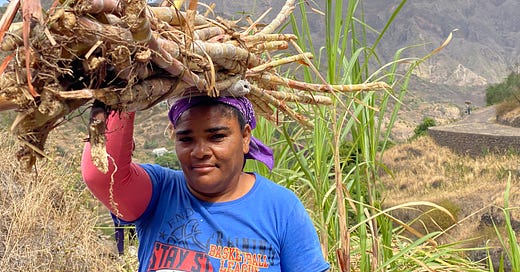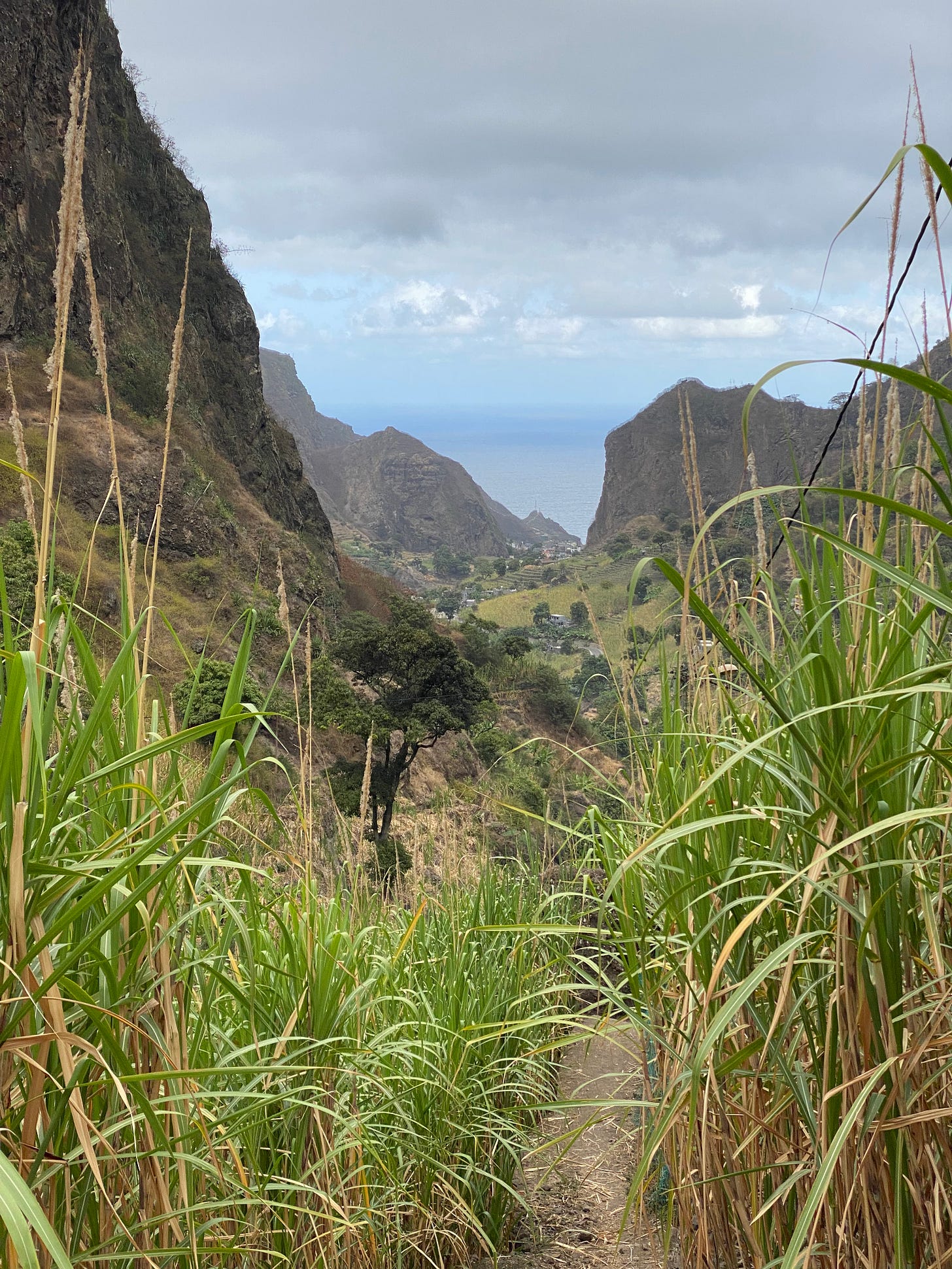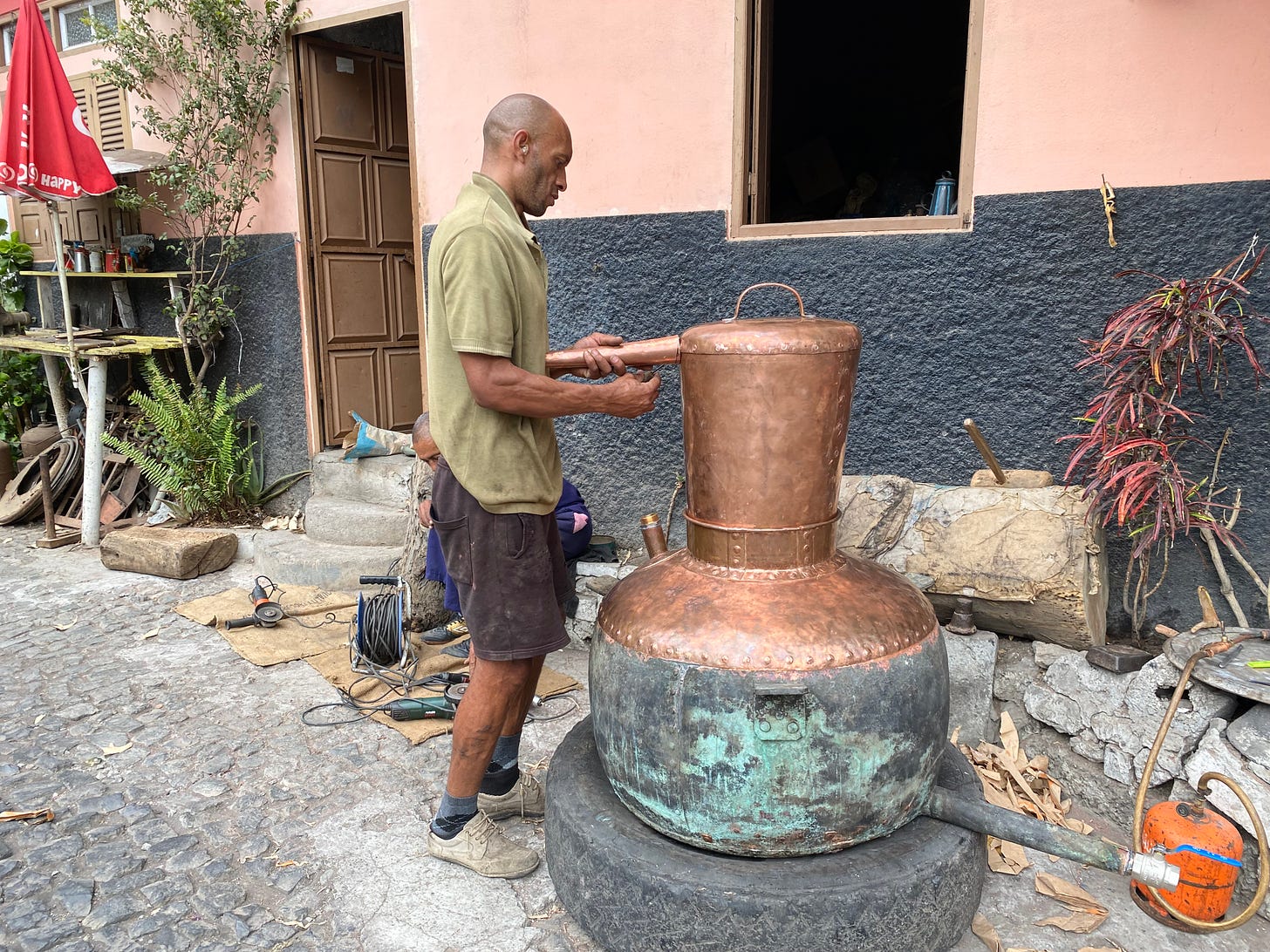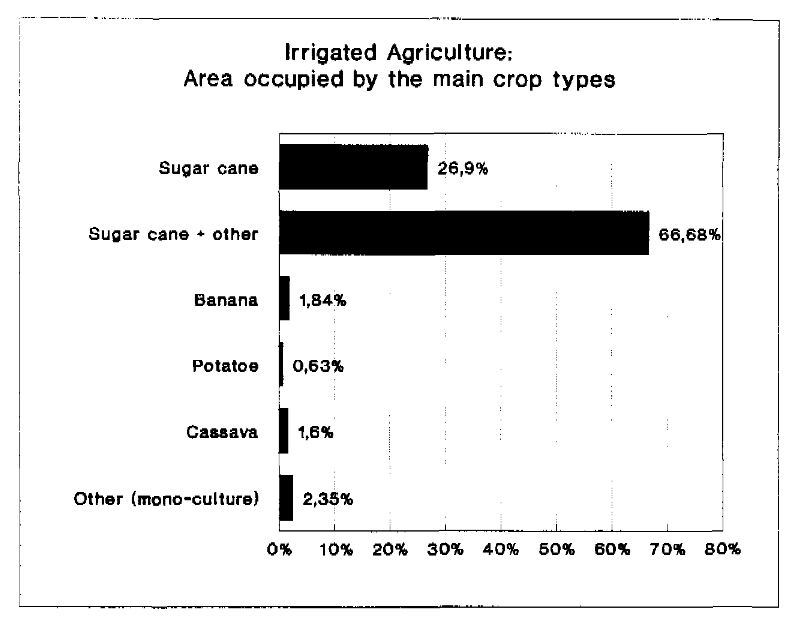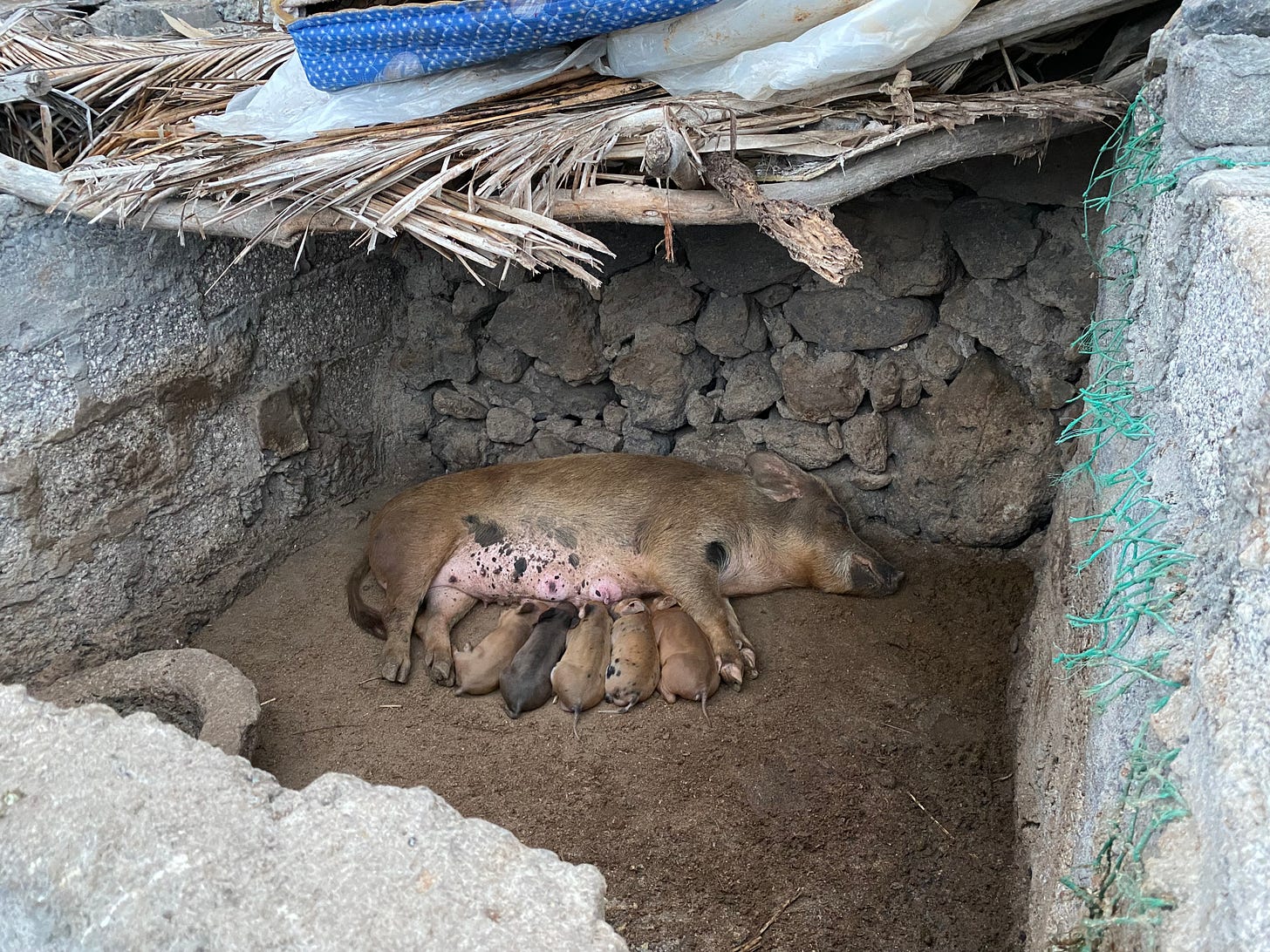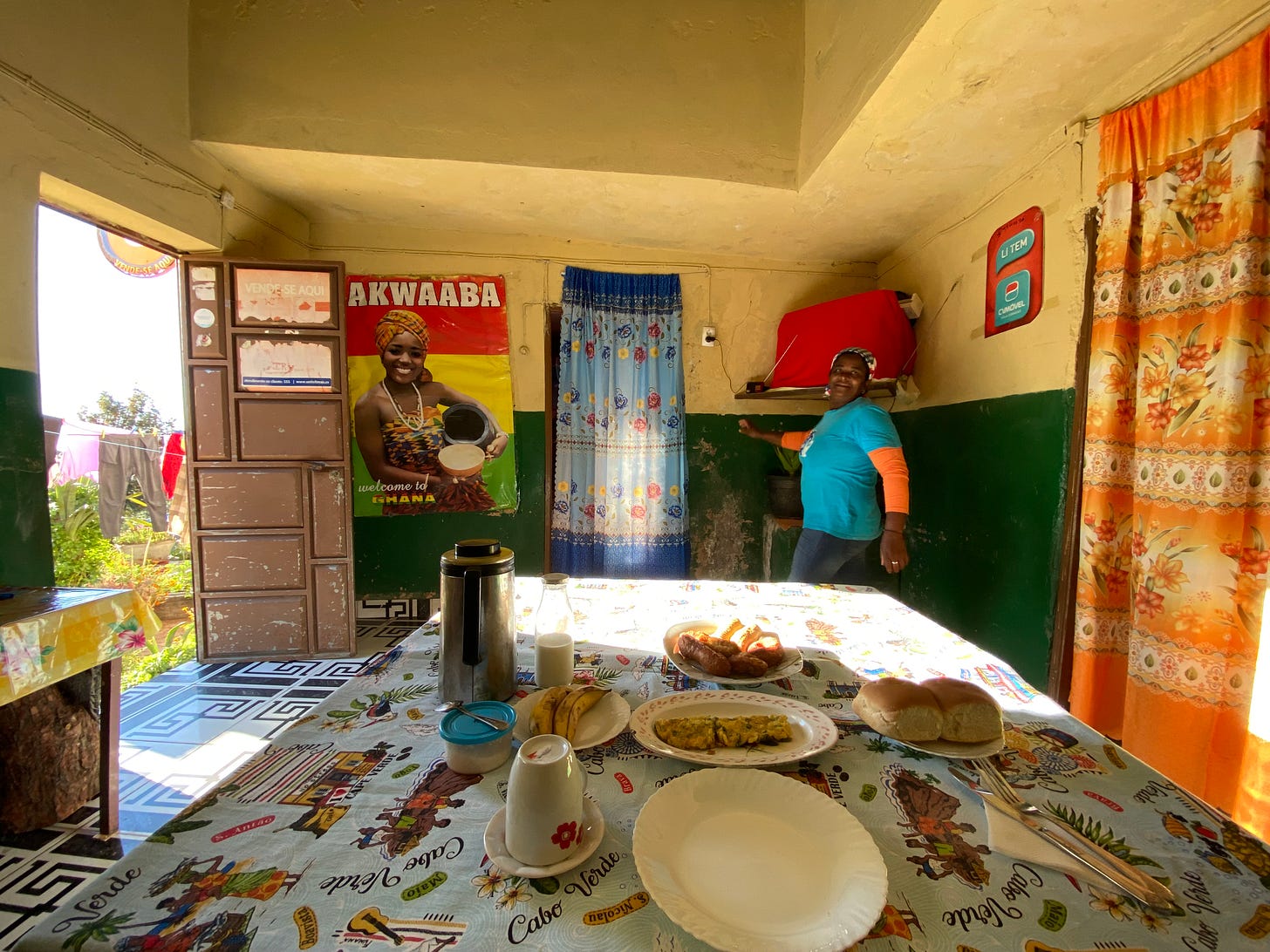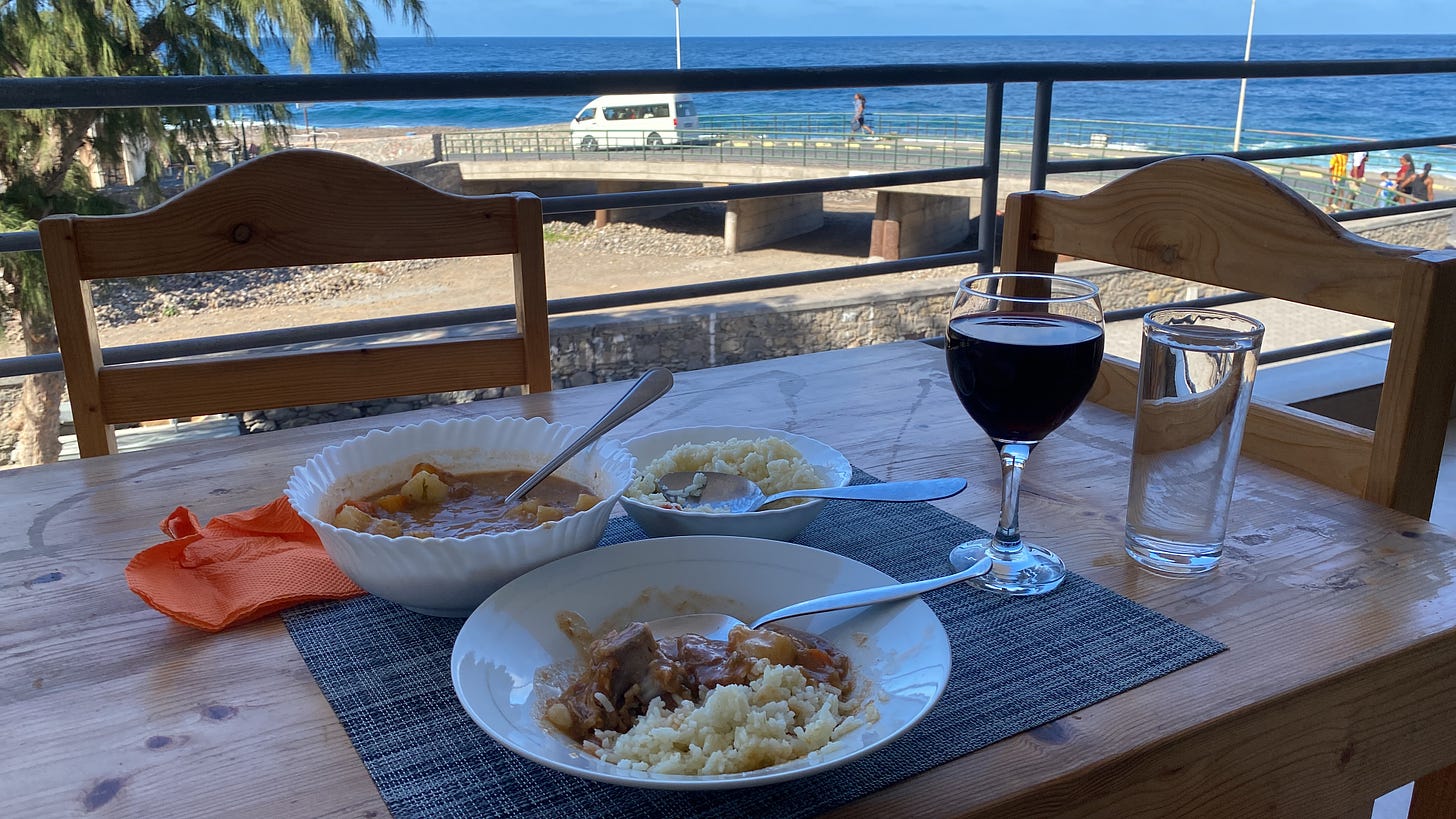During my short visit at Cape Verde, I saw some things that could not be explained by any logic.
Cape Verde is inherently at risk of food shortage. Several times in history, thousands of people there died of hunger. Even recently, the UN declared a food emergency with 1/3 population at risk (2022). This is attributed to shortages of water (droughts) and infertile soil. In this context, what I have seen does not make any sense.
I visited Santo Antão, considered the most fertile island of the archipelago (along with the island of Santiago). Much of the fruit and vegetables come from there. I expected to see some fertile land full of farming. And… no. The vast majority of that land is not used to produce food, but to produce alcohol: they grow sugarcane. The grogo (alcohol) industry in Santo Antão is massive: sugarcane, and sugarcane processing is everywhere. There isn’t really much land left for fruits and vegetables. They exist (mostly manioc and bananas), but seriously there isn’t much.
Why is it so? I asked people and did research, and found no answer. One hint I received was the Santo Antão centipede: a pest endemic to the island, damaging food and crops, due to which the government embargoed the export from the island for the past 25 years. The story is intriguing, but further research shows that it is not the complete answer. I found this fascinating paper from 1994: Integrated Profile of Santo Antão. On page 68 we read:
The predominance of sugarcane in irrigated agriculture and the enormous production of water in the production of grogue are extraordinary when the low output of vegetables is considered: how can sugarcane conversion to grogue be justified, if one litre of alcoholic spirit requires 7.5m3 of irrigation water?
So, already thirty years ago the researchers were shocked that the island was producing alcohol instead of vegetables. They also provided statistics, showing that sugarcane occupied 93% of irrigated land:
My second surprise was the presence of pigs, raised almost everywhere on the island. Why is it surprising? Because production of 1kg of meat requires 6x more water than 1kg of cereals, and 30x more water than 1kg of vegetables.
Notably, with the exception of cachupa (the national dish of beans), the food served in Capo Verdean restaurants are exclusively meet, fish and bakery. It seems people simply don’t eat fruits and vegetables, except manioc, potatoes and beans. A lonely banana at the table is a treat.
But the biggest surprise was the (lack of) compost. The main reason why the fruits and veggies are so expensive is, I was told many times, infertile land. But you can produce fertile land easily, by making compost. It costs nothing, and if 100,000 Cape Verdean households started segregating waste, they could produce plenty of fertile soil in no time. But this isn’t happening. Organic waste was simply thrown away in all households I visited (except where people raised pigs). Why? I cannot explain this logically.
There have been more surprises, which I will only mention: lack of water conservation and very few water dams (in the country that has shortages of water), and energy produced by burning oil (in a country that has plenty of wind and sun, but no oil)
With all these surprises, what comes in mind is an excellent book by a historian Jared Diamond: Collapse: How Societies Choose to Fail and Succeed. The author explains that cultural patterns in societies are so strong, that people prefer to die of starvation rather to change their habits. One dramatic example is the collapse of the Norse (Viking) settlements in Greenland in the Middle Ages. There, the entire colony died starved to death, even though the rivers were full of fish. The reason? Taboos (superstitions and magical beliefs) prohibiting consumption of freshwater fish.
I can see a strong analogy. It seems that food shortages at Capo Verde could be eliminated with simple changes of the mindset and the eating habits. However, what seems logically simple, may be practically difficult. Especially if it goes against the cultural patterns consolidated by centuries. Needless to say…. the islanders love grogo!

